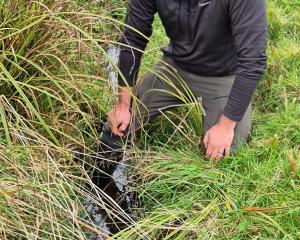
The new bylaw is out for consultation later this month, following a fraught genesis that has polarised residents and commercial campground owners.
At a recent meeting, the council approved a "consultation package" containing details of the proposed bylaw and underlying strategic approach to the long-standing issue.
The package details a "restrictive, open" policy to freedom camping, which would allow visitors to camp anywhere in the district except for defined areas focused on its main towns and scenic locations.
Planning and regulatory group manager Ian McCabe said the council believed it would be both an effective and economical solution that would address issues of noise, waste disposal and antisocial behaviour caused by previously unregulated freedom camping.
"The proposed approach aims to strike a balance between [legal] requirements and community expectations that council will more closely manage the impacts of freedom camping."
Existing council staff, including a dedicated ranger, would "probably be adequate" to manage the scheme, he said.
"The approach [expands on] the existing situation, by clearly identifying areas where you can and can’t camp.
"It may actually reduce the amount of policing required."
Although ratepayers would fund policing, costs could be offset by fines for campers failing to follow the rules, he said.
"[Fines could] be issued with more certainty, and ... be used to fund enforcement activity. This may mean the cost to ratepayers could decrease."
The proposals also allow for the council to establish additional designated freedom camping sites — a practice that angered some commercial campground operators after an eight-berth trial site was established in Owaka last season.
Mr McCabe said the aim of such sites was not to disadvantage commercial operators and had been shown during the trial to generate additional visitor expenditure.
"The bylaw states upfront that council encourages campers to use camping grounds and other accommodation facilities as much as possible.
"The number of spaces [in such sites] would be limited and signage would identify nearby camping grounds and could also note other local attractions."
Public consultation on the proposals will run from July 30 to September 1.
The finalised rules will come into effect on November 1.












